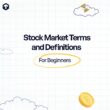Are you searching for a way to add stability and tax-free income to your investment portfolio? Municipal bonds, or “munis,” might be the perfect answer.
These often-overlooked securities combine dependable income with unique tax advantages, making them attractive to investors from high-income earners to retirees. In this blog, I will help you understand what municipal bonds are and who can invest in them.
What are Municipal Bonds?
Municipal bonds are debt securities issued by local and state governments to fund public projects such as schools, roads, and infrastructure.
When you buy a muni, you’re essentially lending money to a public entity, which promises to pay back the principal with interest over a set period. The interest you earn is typically exempt from federal income taxes and, in some cases, state and local taxes as well.
The Benefits of Municipal Bonds
1. Tax Advantages: One of the biggest selling points of municipal bonds is their tax-exempt status. If you’re in a high tax bracket, the tax-free yield of a municipal bond can outperform even higher-yield taxable securities when adjusted for taxes. For instance, if a munis has a yield-to-maturity (YTM) of 4.63%, its taxable-equivalent yield can jump to over 7% for those in the highest tax.
2. Low Default Rates and Safety: Historically, municipal bonds have exhibited lower default rates compared to corporate bonds. In fact, investment-grade munis have an excellent track record for reliability, making them appealing during periods of economic uncertainty.
3. Portfolio Diversification: Munis often have a low correlation with other asset classes, such as stocks and corporate bonds. This diversification can be especially beneficial in volatile markets, offering a buffer when riskier assets falter.
4. Predictable Income Stream: For retirees or anyone needing a steady income, municipal bonds deliver fixed interest payments. This feature is particularly valuable in the current environment of fluctuating market trends.
Types of Municipal Bond
- General Obligation (GO) Bonds: Backed by the full faith and credit of the issuing municipality, these bonds are considered safer as they are supported by the issuer’s ability to tax residents. They’re often used to fund essential public services.
- Revenue Bonds: Unlike GO bonds, revenue bonds are secured by the revenue from specific projects like toll roads or utilities. While they might carry slightly more risk, they often provide higher yields.
- Specialty Bonds: Categories such as prepaid gas bonds or tobacco settlement bonds offer unique investment opportunities with specific revenue streams.
Risks to Consider when investing in municipal bonds
While municipal bonds offer many benefits, they come with their own set of risks:
- Interest Rate Risk: Rising interest rates can decrease the value of existing bonds. However, 2023 has seen higher yields that provide some cushion against moderate rate hikes.
- Credit Risk: Though defaults are rare, certain sectors like senior living facilities and urban transit bonds face challenges due to economic shifts and post-pandemic effects.
- Liquidity Risk: Some municipal bonds may not be as liquid as their taxable counterparts, potentially affecting the ease with which you can sell them
Who Should Invest in Municipal Bonds?
- High-Income Earners: If you’re in a higher tax bracket, the tax-exempt nature of munis can significantly enhance your after-tax returns.
- Retirees: For those seeking consistent income, municipal bonds offer a reliable option with lower risk than equities.
- Conservative Investors: Municipal bonds are ideal if you aim to protect capital while earning modest returns.
How to Invest in Municipal Bonds
1. Direct Purchase: You can buy individual bonds through brokers or financial institutions. This approach gives you control over your bond choices but may require more effort to research and manage your portfolio.
2. Municipal Bond Funds: If diversification is important, mutual funds or ETFs focused on municipal bonds can offer exposure to a broader range of bonds with varying maturities and risk levels
3. Tax-Managed Accounts: Work with a financial advisor to set up an account tailored for tax efficiency, leveraging strategies like tax-loss harvesting to maximize returns

Conclusion
The financial world is a bit complex, and finding investments that offer both safety and a solid return can be challenging. Yet, municipal bonds stand out, especially in today’s economic climate. With their attractive yields, tax benefits, and history of low default rates, they present a compelling case for inclusion in any diversified portfolio.
Therefore, if you’re looking for a consistent income stream during retirement, aiming to maximize after-tax returns, or seeking a safer haven during market volatility, municipal bonds can be a strategic addition.




